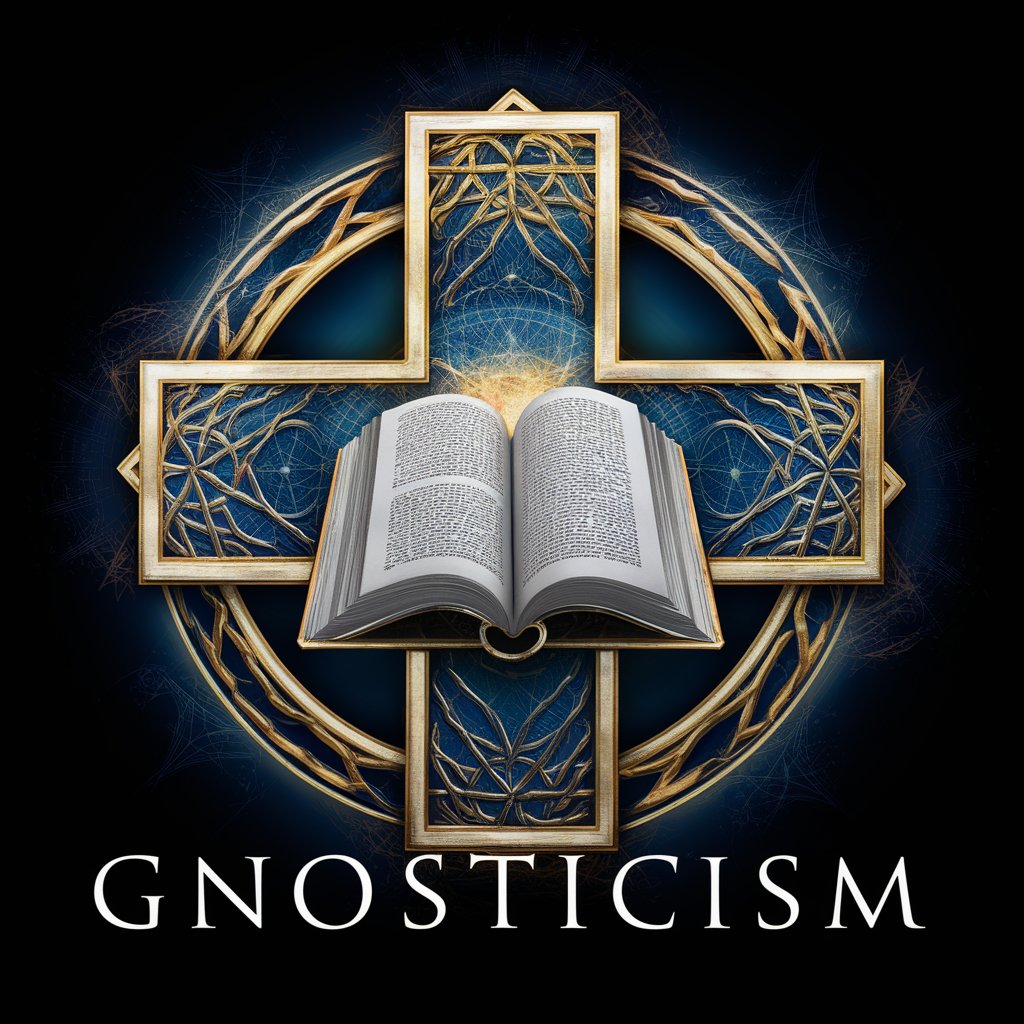Gnosticism - Gnostic Wisdom Access

Welcome! Let's explore the depths of Gnosticism together.
Explore ancient wisdom, powered by AI
Explain the significance of the Demiurge in Gnostic cosmology.
Describe the role of Sophia in Gnostic myths.
Discuss the concept of gnosis and its importance in Gnosticism.
Compare and contrast the views of salvation in Gnosticism and mainstream Christianity.
Get Embed Code
Gnosticism Explained
Gnosticism is a religious and philosophical movement that emerged in the early Christian era, characterized by the belief in gnosis, a form of special knowledge or insight necessary for salvation. This knowledge is understood to reveal the divine spark within humans, obscured by the material world created by a lower deity, often identified as the demiurge. Gnosticism synthesizes elements from various religious traditions, including Christianity, Judaism, and Hellenistic religions, forming a diverse and complex belief system. Its texts, such as the Nag Hammadi library, offer insights into its rich mythology, cosmology, and soteriology. For example, the Gospel of Thomas, part of this collection, emphasizes direct personal knowledge of the divine over orthodox beliefs and practices. Powered by ChatGPT-4o。

Core Functions of Gnosticism
Salvation through Gnosis
Example
The pursuit of gnosis involves a deeply personal and esoteric understanding of one's divine nature and the nature of the universe, which is believed to liberate the soul from the material world.
Scenario
A seeker disillusioned with materialistic views of the world delves into Gnostic texts, practices meditation, and participates in rituals, aiming to awaken their inner spiritual knowledge and achieve salvation.
Dualistic Worldview
Example
Gnosticism presents a dualistic cosmology, distinguishing between the spiritual realm of the true, transcendent God and the material world created by the demiurge, viewed as flawed or evil.
Scenario
An individual studying Gnostic teachings comes to view their struggles and suffering as part of the inherent flaws of the material world, finding comfort in the notion of a higher, benevolent spiritual reality.
Critique of Orthodox Religion
Example
Gnostics often critiqued orthodox religious institutions and doctrines, advocating for a personal, direct experience of the divine over adherence to established dogmas.
Scenario
In a discussion group, participants compare Gnostic texts with orthodox Christian teachings, exploring the Gnostic emphasis on personal spiritual experience and questioning traditional interpretations of scripture.
Who Benefits from Gnosticism?
Spiritual Seekers
Individuals dissatisfied with conventional religious institutions and seeking a deeper, more personal spiritual understanding. Gnosticism offers a path that emphasizes personal insight and the direct experience of the divine.
Scholars and Historians
Researchers interested in the historical development of religious ideas, especially those exploring the origins and influences of early Christian sects, will find Gnosticism's texts and teachings a rich area for study, offering insights into the diverse spiritual landscape of the first few centuries CE.
Philosophers
Those intrigued by metaphysical questions and the nature of reality may be drawn to Gnosticism's dualistic worldview and its critique of materialism, providing a unique perspective on the relationship between the spiritual and the physical.

Engaging with Gnosticism
1
Begin with introspection and research. Start by exploring Gnostic texts and teachings, such as the Nag Hammadi library, to understand the foundational beliefs and concepts.
2
Practice meditation and mindfulness. Gnosticism emphasizes personal spiritual knowledge (gnosis) above orthodox beliefs and dogmas, advocating for direct, personal experience of the divine.
3
Join a study group or community. Engaging with others interested in Gnosticism can provide additional perspectives and insights, deepening your understanding and experience.
4
Incorporate Gnostic principles into daily life. Reflect on the teachings and how they relate to your personal spiritual journey and ethical living.
5
Maintain a journal. Documenting your thoughts, experiences, and progress can help in synthesizing Gnostic teachings with your personal spiritual development.
Try other advanced and practical GPTs
Web Banner Idea Generator
Craft Banners Easily with AI

QUOTES FOR LIFE
Empowering Communication with AI-Curated Quotes

Relationship Sage
Empowering Relationships with AI

CHRIS
Elevate Projects with AI Insight

Analista de Riesgos Financieros
AI-driven Financial Risk Management

Cooperativas Plus
Empowering Cooperatives with AI-driven Insight

Business Name Generator
Craft Your Brand's Identity with AI

Nikki's Wedding Wisdom Wedding Planner
AI-Powered Wedding Planning Made Simple

Business Navigator
Navigate Business with AI Precision

Founder Software House
Empowering Business Decisions with AI

제주 한달살기 AI
Navigate Jeju effortlessly with AI

Como criar Stories que engajam
Craft Stories, Spark Engagement

Understanding Gnosticism Through Q&A
What is Gnosticism?
Gnosticism is a religious and philosophical movement that emerged in the early Christian era, emphasizing personal spiritual knowledge (gnosis) over orthodox teachings and doctrines.
What are the Gnostic texts?
Gnostic texts include a variety of early Christian writings found in the Nag Hammadi library, such as the Gospel of Thomas, the Gospel of Philip, and the Apocryphon of John, among others.
How does Gnosticism differ from mainstream Christianity?
Gnosticism differs from mainstream Christianity primarily in its belief in gnosis as the path to salvation, rather than faith alone or adherence to church doctrines. It often presents a dualistic view of the world, contrasting the material with the spiritual.
Who were the Gnostics?
The Gnostics were followers of Gnosticism, comprising various groups and sects in the early Christian era, who shared the belief in seeking direct, personal knowledge of the divine.
Can Gnosticism be practiced today?
Yes, Gnosticism can be practiced today. It involves study of Gnostic texts, meditation, and a personal quest for spiritual knowledge, integrating its principles into one's life for personal growth and understanding.
